Lt. Col. Dr. Ivan Edwards | A Special keynote Speaker at the Diaspora Gala 2017 Edition
by Ugandan Diaspora Team | September 29, 2017 5:24 pm
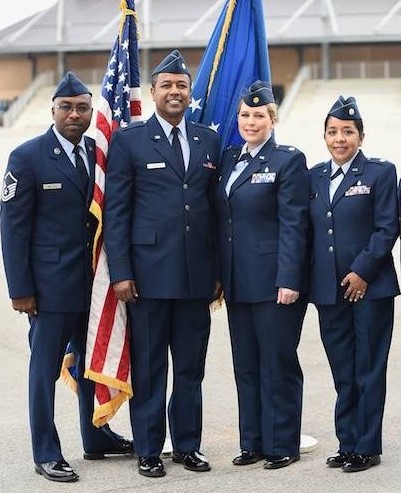 [1]
[1]
The 7th annual Ugandan Diaspora Awards gala is now officially activated and we are proud to announce that one of our active military personnel and a US surgeon born in Uganda at Mengo hospital — Lt. Col. Dr. Ivan Edwards accepted our invitation and request to be our keynote speakers and award recipients on Saturday 30th December 2017.
Dr. Edwards was recently promoted to the new rank of Lieutenant Colonel in the United States Air-force October 2018. (Below are Dr. Edwards accomplishments as a Uganda Diaspora Success story — see previous Diaspora article below to learn more)
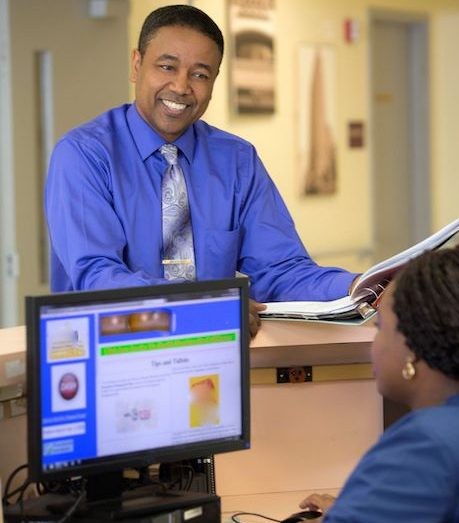 [2]
[2]
Medical doctor, Director of Nix Specialty Acute Rehabilitation Hospital. Director (NeuroRehab) of Select Rehabilitation Hospital. Typical patient caseload: multiple trauma, pain, brain injury, spinal cord injury, stroke, amputation, arthritis, MS, Parkinson’s disease and post acute patients with multiple diseases.
Lieutenant Colonel Select (pin on date in 2018). USAF Flight Surgeon. Entrepreneur: CEO/Founder of two firms–IEME LLC since 2013 and JOVANA Rehabilitation & Pain PLLC since 2017. Board Certified in Physical Medicine & Rehabilitation; Board Eligible in Headache Medicine, Brain Injury Medicine and Pain Medicine.
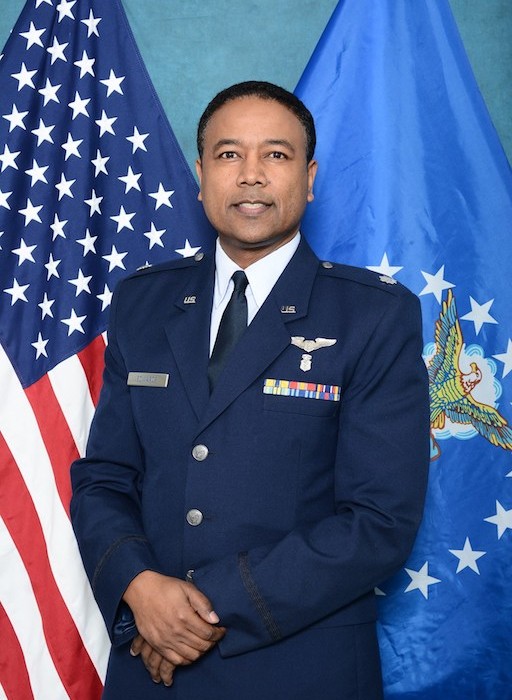 [3]
[3]
Member of the American Academy of Physical Medicine & Rehabilitation. Member of the Aerospace Medical Association. Member of the Distinguished Society of USAF Flight Surgeons. Recent nominee of the Leukemia & Lymphoma Man of the Year 2018.
See previous article article below
http://www.ugandandiaspora.com/dr-ivan-edwards-a-ugandan-is-a-major-in-the-us-air-force-serving-as-a-flight-surgeon[4]
———————————————————————————————————-
Lt. Col. (Dr). Ivan Edwards was born in Uganda, and speaks fondly of his motherland. He says that he is proud to have set foot in the USA, and given the tools to become a doctor and a senior military officer.
He shares his sentiments of an underlying “racial bias” in a country in which he was born and having to explain to folk that he is as much a Ugandan as they are. Here is the story of his upbringing and his life experience as a Ugandan.
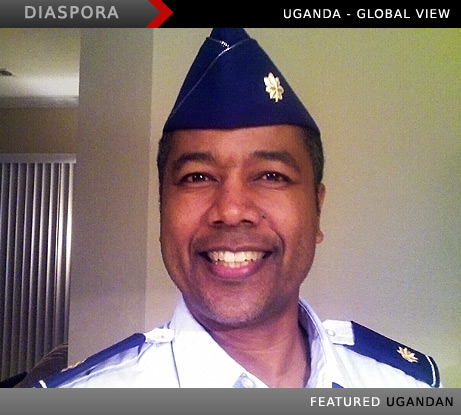
My story would be incomplete without some background information.
I was born at Mengo Hospital in the 1960s to biracial parents—an amorous product of mixed heritage early European settlers left on the Ugandan landscape.
My father, Teddy Edwards (now deceased), was half English and half Ugandan. His father, Charles Edwards, from whom we derived our last name, was an English settler who left Europe in the early 1920s for Uganda. Like many settlers before him, Charles Edwards loved Africa and Uganda in particular. He romanced and settled with a Ugandan woman, Julie (from Hoima), and raised a family. Charles never returned to Europe. He didn’t have to—and didn’t want to. He had found his new home, Uganda. He died in the 1950s and was buried in Uganda.
My mother, Ludmilla Nabisooli (still living in Uganda) is half Czech and half Ugandan. Her father, Jaromir Skrlandt, left Europe after World War I. Upon his settlement in Uganda, he fell for a Muganda lady and their offspring included my mother. To no surprise, Jaromir never returned to Europe. He learned Luganda and Swahili, and spoke Luganda so well that the native speakers gave him a Luganda name. Jaromir, like Charles, had found his new home. He died in 1970 and was buried in Uganda.
My father, Teddy Edwards, was a successful Workshop manager at East African Breweries—later renamed Uganda Breweries (following the collapse of the East African Community).
In all ways, we were raised in a good home environment. I attended good government schools for my entire primary and, later, secondary education.
However, we didn’t escape the tribulations of Amin’s dictatorial rule. In the early 1970s, my father was falsely accused, beaten, and imprisoned (without trial) by Amin’s henchmen—a common practice in the bloody dictator’s regime. Without the intervention of Brig Bogere (a military physician under Amin’s administration with whom we had developed close family ties), my father would have been killed. Though he was released alive, my father didn’t leave the death chambers unscathed: he permanently lost sight in one eye and had multiple welts and wounds from the brutal lashes he received while in confinement.
While my father was unlawfully detained (and without his income to support us), we endured some hardships. My mother, single-handedly, took charge and helped raise us through those rough times. How she did it…to this day, I don’t know!
In a way, we were not permitted to dwell on the dire circumstances but on the good possibilities that could, one day, become reality.
Some instances were too painful to bear. For instance…the two separate times when my father’s life was almost extinguished. Twice, he was shot at. One incident involved a man who, without provocation, brandished a pistol in my father’s face (in public) and pulled the trigger. Fortunately, the dislodged bullet grazed my father’s scalp…and, somehow, my father managed to escape with blood pouring from his injury. The other close encounter involved a home invasion in which armed assailants—and the one with an AK 47—shot my father twice in the arm and torso. Fortunately, again, my father survived. But that wasn’t all!
That same night when my father was shot, my mother was shot too, in her pelvis–at point blank by the same assailant with the AK 47 rifle. To this day, I cannot describe the feelings I felt brew inside me. To see your parents bleed all night from gaping bullet wounds—and you could do nothing but clamp towels on them to stop the bleeding . . . with nowhere to go and no one to call since there was a curfew and travel restrictions in place . . . that is a nightmare I wish no one ever gets to experience in this life . . . ever! And to suffer such brutality without the protection of a police force and/or the services of a humanitarian body (let alone a basic ambulance service) in spite of being innocent law abiding taxpayers and citizens was mind shattering!
Naturally, no police investigations were ever conducted. This was our own ordeal to handle.
Though my parents eventually survived their injuries following prolonged treatment at Nsambya Hospital, our lives were changed forever. My father kept a very low profile in society, and avoided public functions. My mother sustained permanent internal injuries—which, to this day, limit her full physical functionality.
Indeed, from the era involving the expulsion of the Asians in 1972 and through Amin’s tumultuous rule and up to the UNLA liberation war in 1979–including the rapid and unstable post Amin regimes that followed–we, like all Ugandans then, saw it all. The seemingly endless wars, the daily politically motivated and sometimes random killings, the curfews, the sugar and essential commodities shortages, the long lines at fuel stations, the notorious panda gari exercises, the blatant nepotism and corruption…these experiences, and many such others, were, unfortunately, part of the Ugandan experience then.
In 1988, I left my motherland of Uganda for the USA. I was in search for a better life, and wanted an opportunity to develop my potential.
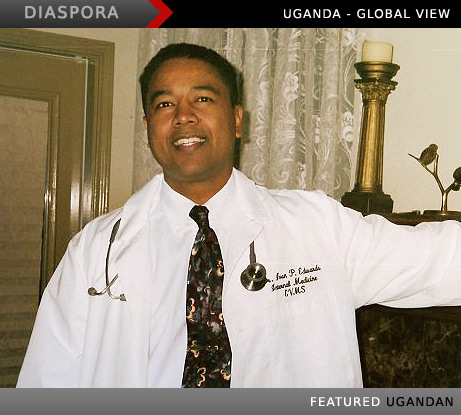
There were obstacles to overcome in the US: integration in a land with freedom of speech—a foreign concept I never quite experienced before. But, the US embraced me well and gave me the opportunity and tools to succeed.
I studied medicine because I felt obligated to heal humanity’s wounds in a personal way. Maybe, subconsciously, I chose medicine because all I had seen prior was human pain and suffering—and I wanted to be on the end of the other spectrum delivering relief and hope. And, today, I am a doctor. A specialist in Physical Medicine & Rehabilitation, I treat people with bone, muscle, and nerve issues—including pain.
The call to serve in the US military evolved over time. I felt indebted to serve a nation that truly believed in freedom, justice, and liberty. Maybe, subconsciously too, since I had seen what a military should not be, juxtaposed what it should be (to serve and protect its people), could have been the impetus for me to join the US military.
So, after completing medical school (Midwestern University), I obtained a direct commission to the rank of captain in the US Air Force Reserves. Later, with residency training completed, I was promoted to the rank of major (a field grade rank that begins an officer’s rise to seniority). My duty in the US Air Force Reserves is that of a Flight surgeon.
I have returned to Uganda a few times. The last time I visited was in 2004. The scenery has changed over the years. Not surprisingly, the narrative of the young generation today is different; the generation today does not know (though it has heard) of the injustices our people suffered for decades. I love Uganda, and always will!
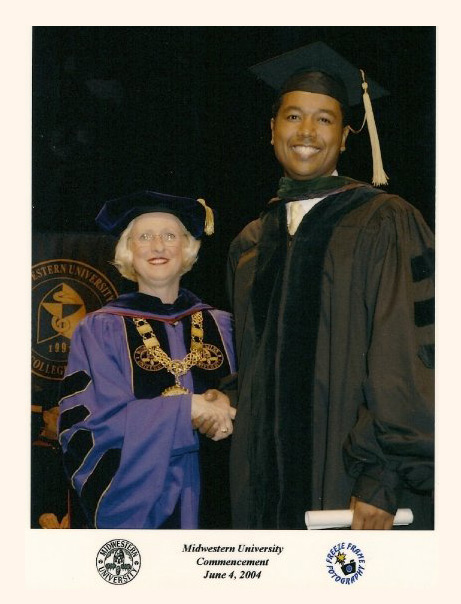
Through my experiences, I have learned some valuable lessons. Determination and a desire to excel (coupled with faith) have been the ingredients to success in my life. I learned that one’s experiences can propel one to succeed. One develops determination to go forward one step at a time and never look back or slow down. The desire to excel and achieve results, despite odds and roadblocks, is the vision one has to look up to. One has to change from a course of destructive negativism to that of constructive positive change. Destructive habits and traits have to die, and new ones have to be developed.
- [Image]: http://www.ugandandiaspora.com/wp-content/uploads/2017/09/ivan1-e1506719868350.jpg
- [Image]: http://www.ugandandiaspora.com/wp-content/uploads/2017/09/ivan2-e1506719933470.jpg
- [Image]: http://www.ugandandiaspora.com/wp-content/uploads/2017/09/ivan-e1511398838350.jpg
- http://www.ugandandiaspora.com/dr-ivan-edwards-a-ugandan-is-a-major-in-the-us-air-force-serving-as-a-flight-surgeon: http://www.ugandandiaspora.com/dr-ivan-edwards-a-ugandan-is-a-major-in-the-us-air-force-serving-as-a-flight-surgeon
Source URL: https://www.ugandandiaspora.com/maj-dr-ivan-edwards-a-special-keynote-speaker-at-the-diaspora-gala-2017-edition/